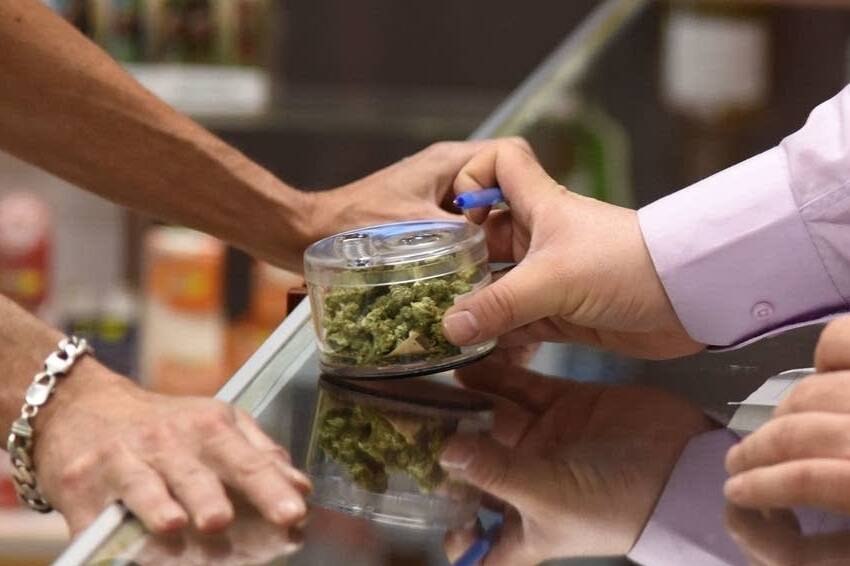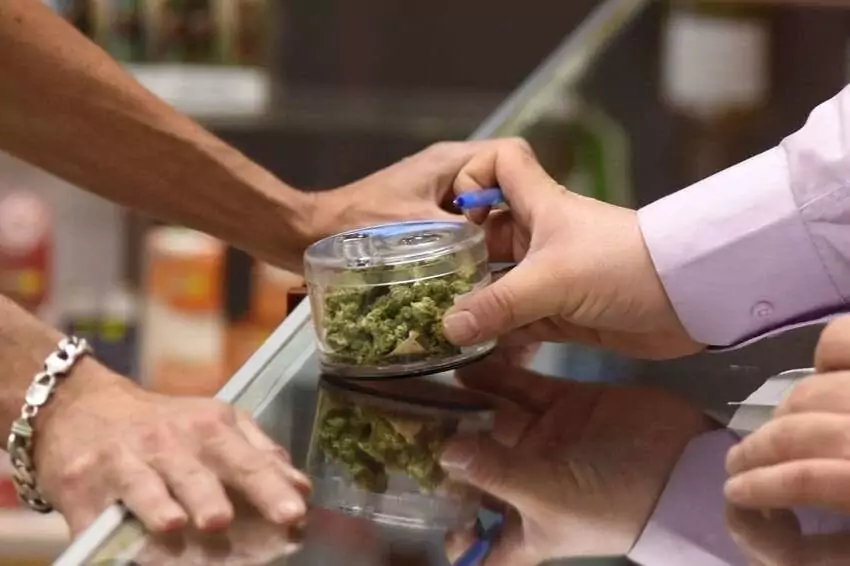

(c) MPR News
Thailand’s military government is conducting an experiment to determine what happens when a country in Asia, a region with generally strict drug regulations, effectively legalizes marijuana overnight.
In the first few months, a large number of people created marijuana stores, and their consumers smoked a substantial amount of marijuana.
On a street level, the marijuana sector in Thailand has a jubilant, unrestricted atmosphere. Some dispensaries provide workshops on how to roll joints and make “weed tea.” The admission price for next week’s “yoga on high” class includes a joint, a beer, a snack, and yoga mat rental.
“It’s great because you can buy it whenever you want,” said Ak Sudasna, 50, who owns a real estate company in Bangkok and purchases approximately 40 grams of marijuana every month from stores near his home for about $15 per gram.
“It is pleasant for tourists,” he remarked. It’s beneficial for the nation.
However, the good times may not continue. In the next weeks, Parliament is scheduled to vote on a voluminous bill aimed at regulating legal gray areas around the cultivation, sale, and consumption of the substance. It might become legislation as soon as the following year.
The precise impact of the law on the sector and consumers like Mr. Ak will depend heavily on the fine print. However, its precise scope and aim are currently being debated in a parliamentary committee behind closed doors.
Numerous nations in the Asia-Pacific area impose lengthy sentences on those convicted of marijuana possession, use, or trafficking. Until recently, the same was true in Thailand, where a former general seized power in a coup in 2014. In June, when the United States removed marijuana flowers (the component of the plant that is smoked to get high) from its drugs list, it became an outlier in regional drug policy.
As part of a goal to encourage small-scale cannabis cultivation, officials have recently inserted a few restrictions. Public marijuana use is forbidden, for instance. THC, the psychoactive component of the plant, may only be present in trace amounts in foods. And officially, all transactions are for medicinal rather than recreational purposes, although vendors do not compel buyers to present doctor’s notes. (Since 2019, Thailand has permitted cannabis use under medical supervision.)
“They are still figuring out what legalization entails,” said Thanisorn Boonsoong, the CEO of Eastern Spectrum Group, a Thai firm that was founded in 2019 and sells products using CBD, a cannabis ingredient that does not get consumers high but is extensively marketed as a therapeutic panacea.
“Recreational marijuana remains a hazy area because the measure has not yet been passed,” he continued, referring to the draft Cannabis and Hemp Bill that was introduced in June and returned to committee in September. Therefore, it creates several regulatory loopholes for recreational smoking.
Foreign investors are uneasy with Thailand’s “go with the flow” attitude to medical usage, according to Seattle attorney Frederic Rocafort, who advises clients on cannabis legislation in Thailand and other nations.
If you happen to breathe K-drama, then your 'May 2025' will most likely be well-rendered into a month! Romantic sagas,…
Since yesterday, May 2, 2023, at the Mall of Asia Arena in Pasay, Ahtisa Manalo has demonstrated her brilliance by…
“you’re nothing but a trying hard copycat” Character- Lavinia Arguelles Film- Bituing Walang Ningning (1985) Context- Lavinia confronts her rival…
During the first months of 2025 WWE released several prominent wrestlers who were part of their talent roster. Professional wrestling…
Seventeen year old sprint prodigy Rin Kubo continues to make athletic history in Japan. At the Shizuoka International Athletics Meet,…
NextRise 2025-the biggest startup and tech event in Asia-is ready to take place in Seoul on June 26-27 at COEX,…
This website uses cookies.
Read More